World’s Largest Bat Species Is the Size of a Human Child
Remember when I told y'all about the Philippines having human-sized bats? Yeah, this was what I was talking about pic.twitter.com/nTVIMzidbC
— hatdog² (@AlexJoestar622) June 24, 2020
In 2020, Twitter user @AlexJoestar622 set the internet on fire when he posted a photo of what looked like a human-size bat in the Philippines. While many were quick to call the photo fake, it's since been confirmed to be real and shows a giant golden-crowned flying fox (Acerodon jubatus). Also known as a golden-capped fruit bat, this endangered species is one of the largest bats in the world and is endemic to the Philippines. Classified as a megabat, these flying foxes can weigh up to three pounds with a wingspan of up to five and a half feet.
While the Twitter photo isn't fake, it does make the bat appear a bit larger than it really is. That's due to forced perspective, which is a common illusion used in photography. Often used in fantasy films to play with our idea of scale, this technique can make objects appear larger by placing them closer to the camera. So while the bat seems frighteningly large on Twitter, it's not quite that big.
Still, anyone would probably jump if they turned the corner and saw this bat snoozing in their garage. Luckily, giant golden-crowned flying foxes really have no interest in humans. Their diet primarily consists of figs and leaves. As with most bats, they go out foraging at night and then sleep during the day. They can live anywhere from 10 to 30 years in the wild. Little is known about their reproduction, except that females give birth to one pup at a time. It's also suspected that they only have one litter a year.
Given their size, it would likely take a large predator to take down this flying fox. In fact, its main predators are large birds of prey like eagles. They are also hunted by reticulated pythons and, unfortunately, humans who use them for their bushmeat. This act, as well as deforestation, are two of the biggest challenges that the giant golden-crowned flying fox faces.
The giant golden-crowned flying fox was placed on the IUCN Red List in 2016 due to its declining population numbers. It's estimated that in the late 1800s, there were mixed colonies of up to 100,000 bats. According to the International Union for Conservation of Nature and Natural Resources, the rough population estimate for these bats is 10,000 to 20,000 as of 2012. And, thanks to the work of the Bat Count Project, it was found that many of the existing mixed colonies—which are much smaller than in the past—don't include the species at all.
When they were first scientifically described in 1831, these bats were actually broken into three subspecies. One of these subspecies, A. jubatus lucifer, is already extinct. So it's more important than ever that we take care of the remaining subspecies.
All bat species are critical for our ecosystem, as they not only help pesky insect populations but are also important seed spreaders and plant pollinators. So while you might not be happy to see this giant bat hanging around your house, in general, bats should be a welcome sign of a healthy ecosystem.
The internet went wild in 2020 when a man in the Philippines posted a photo of an enormous bat hanging out in his garage.
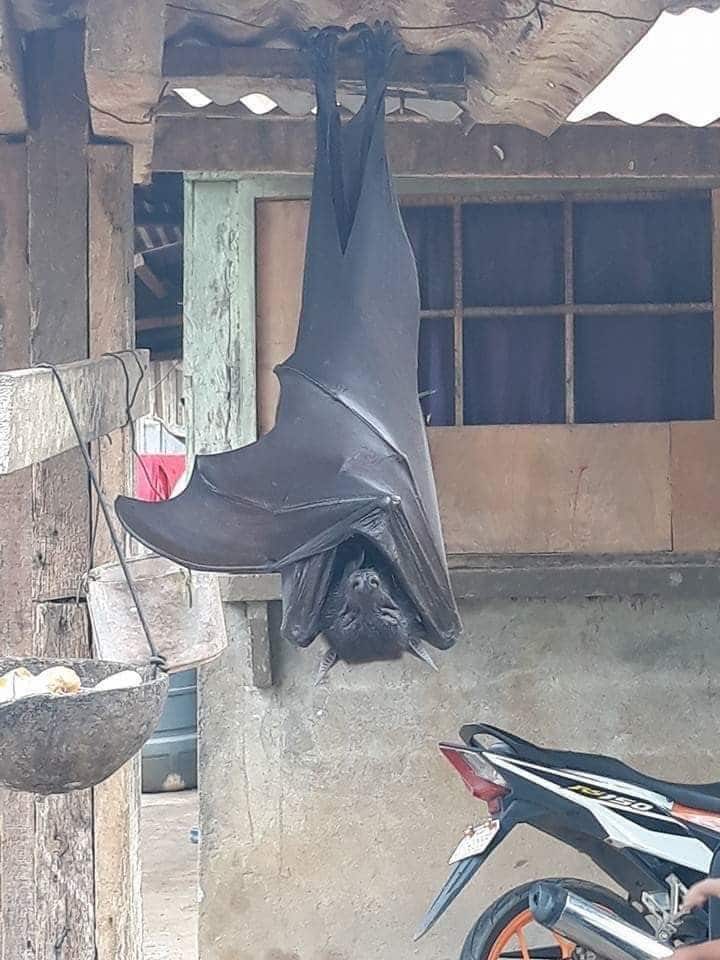
Photo: AlexJoestar622 via Twitter
While some thought it was fake, the photo shows a giant golden-crowned flying fox, which is one of the world's largest bat species.
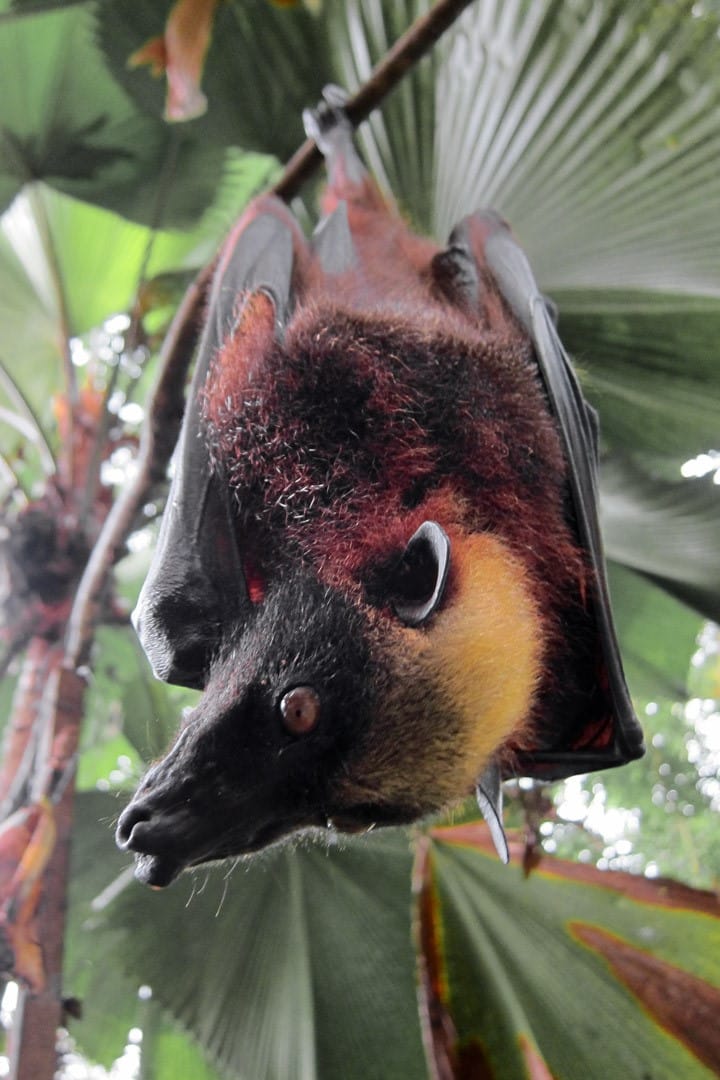
Photo: Gregg Yan via Wikimedia Commons (CC BY-SA 3.0)
It has a wingspan of up to five and a half feet.
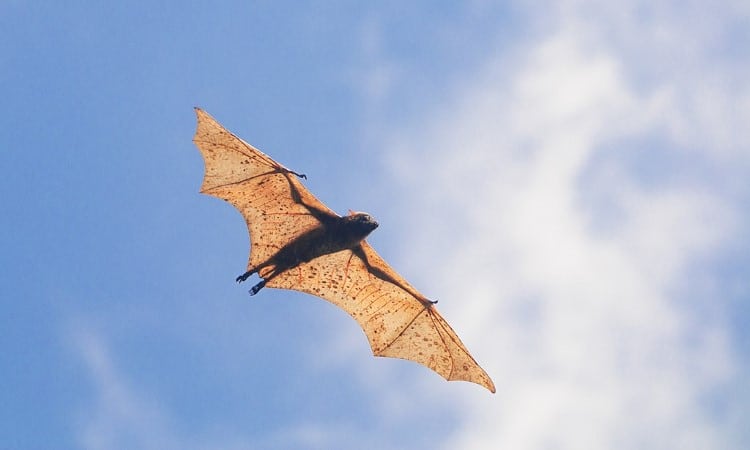
Photo: Luke Marcos Imbong via Wikimedia Commons (CC BY-SA 4.0)
Though forced perspective makes it seem larger, this fruit-eating bat really is the size of a small child.
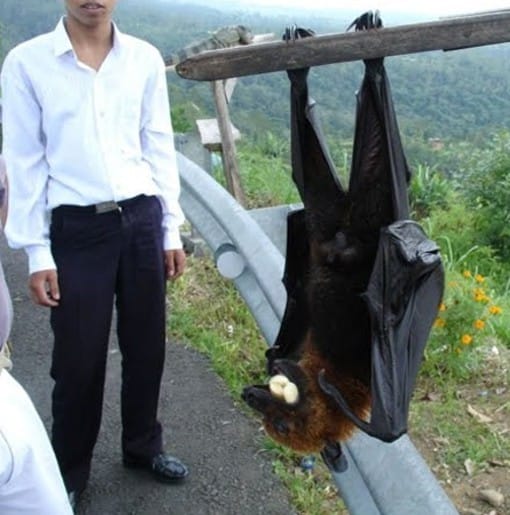
Photo: jenesuisquncon via Wikimedia Commons (CC BY-SA 4.0)
Also known as a golden-capped fruit bat, the species has been listed as endangered since 2016.
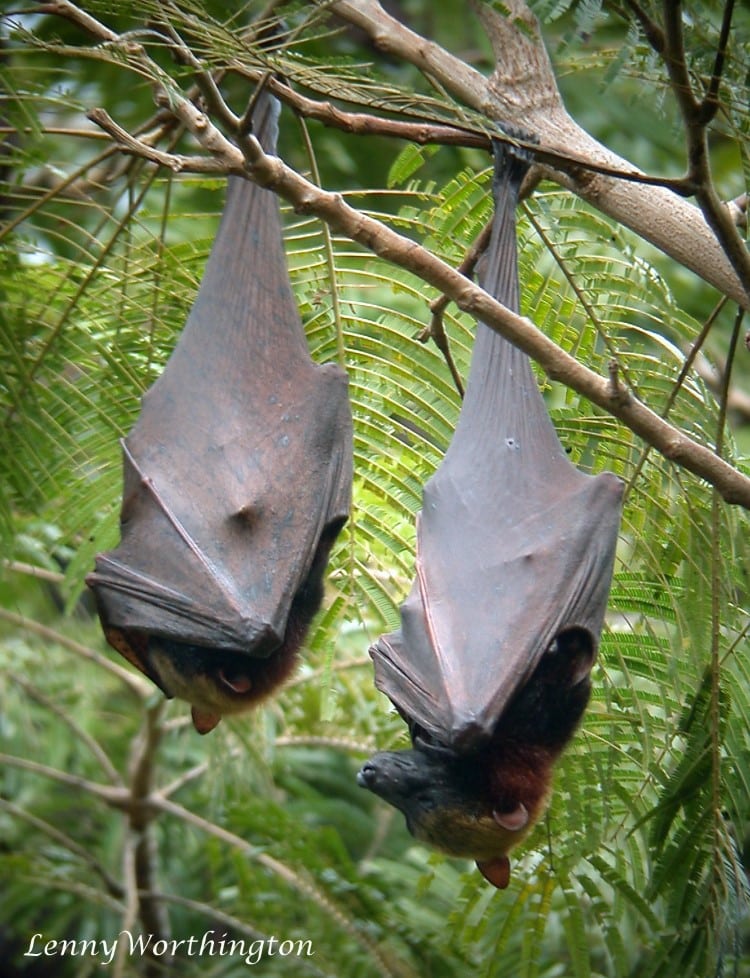
Photo: Len Worthington via Wikimedia Commons (CC BY-SA 2.0)
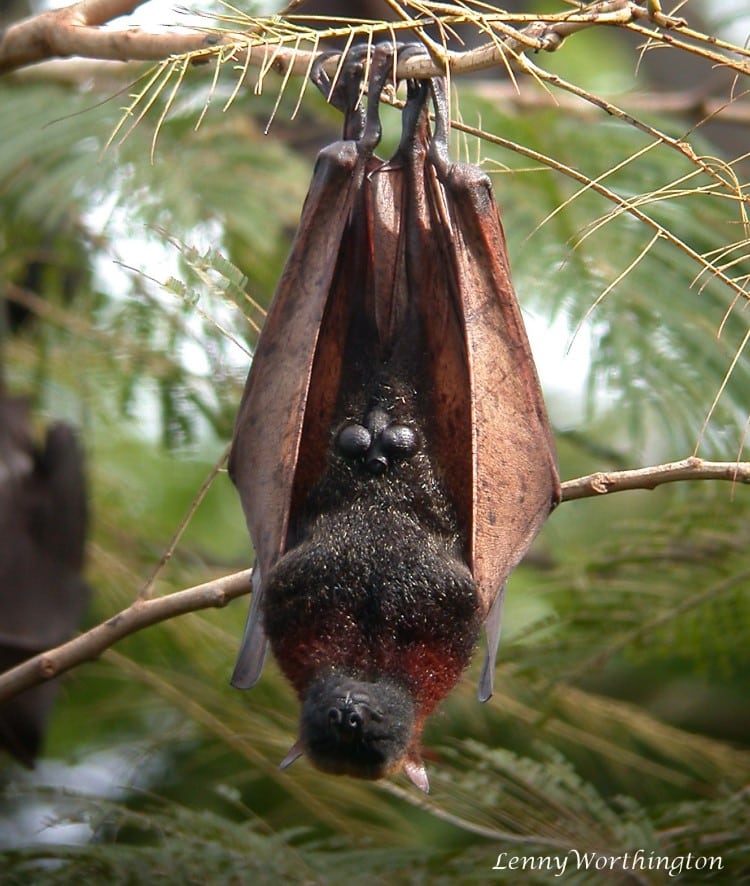
Photo: Len Worthington via Wikimedia Commons (CC BY-SA 2.0)
h/t: [LADbible]
Related Articles:
28 Strange Animals You Didn’t Know Existed
Sweet Bat Portraits Dispel Stereotypes of These Incredibly Important Mammals
This African Gray Parrot Is the First Animal To Ever Ask an Existential Question
Largest Eagles in the World Are So Big That Their Talons Are Bigger Than Bear Claws
READ: World’s Largest Bat Species Is the Size of a Human Child

0 Commentaires